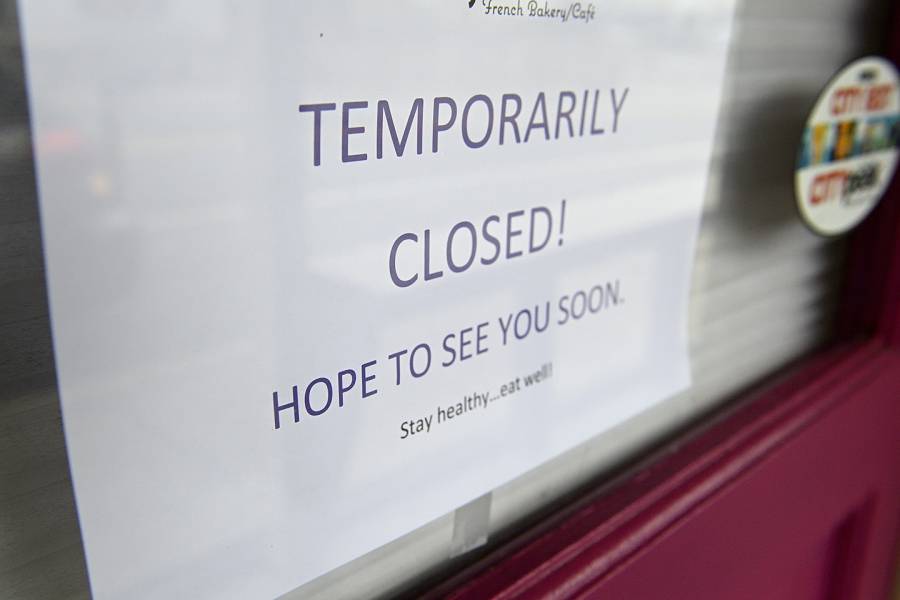Small business owners, leaders, and advocates from across the state took part in a virtual town hall hosted by Johns Hopkins University on Friday morning with U.S. Sen. Ben Cardin to discuss how the federal government is supporting entrepreneurs during the COVID-19 pandemic.
Cardin, a Democrat from Maryland and the ranking member of the U.S. Senate Committee on Small Business & Entrepreneurship, gave the audience of 1,500 viewers a rundown of existing legislation and a preview of what he thinks Congress will accomplish when it is back in session Sept. 8.
The best thing to the federal government could do to help small businesses get back on their feet? Get the virus under control, Cardin said.
"The virus is affecting all of us, it's taking lives, it's changing our future—but it's also very much affecting our economy," Cardin said. "Small businesses are the growth engines of America. There are more jobs created by small businesses than by larger companies. Innovation occurs through small businesses. But small businesses are not as resilient in dealing with downturns in our economy as larger companies are."
The success of small businesses is of keen interest to both Cardin and Johns Hopkins leaders, under normal circumstances but also particularly during economic downturns such as the Great Recession in 2008 and the coronavirus pandemic, said town hall moderator Alicia Wilson, vice president of economic development for Johns Hopkins University and Johns Hopkins Health System.
"During this pandemic, Johns Hopkins, through our HopkinsLocal initiative, has remained focused on ensuring that Baltimore's entrepreneurs have access to one of the most important tools for any business: accurate and reliable information," Wilson said. "We share President Daniels' strong belief in the power of discourse, of sharing ideas to improve the world and draw communities together. In today's webinar, we hope to create such a space for a dialogue that can uncover solutions that will empower small businesses across the state."
The COVID-19 pandemic has highlighted the pre-existing disparities that minority entrepreneurs face accessing capital, mentorship, and technical training. According to a National Bureau of Economic Research analysis of the impact of COVID-19 on small businesses, from February to April of this year, an estimated 41% of Black-owned businesses, 32% of Latino-owned businesses, and 26% of Asian-owned businesses closed, while only 17% of white-owned businesses closed.
Also see
During the Great Recession, minority businesses and the smallest businesses were two to three times more likely to go under, and that's ground that Cardin said he doesn't want the country to lose during COVID-19. This disparity in the impact of the COVID-19 financial crisis on minority-owned businesses is something he hopes to tackle with his colleagues during the next round of economic stimulus.
"I am disappointed that Congress still has not passed another economic relief bill despite ample evidence that small businesses and American families are still struggling under the public health and economic crises caused by COVID-19," Cardin said. "Today's discussion made clear that small businesses in Baltimore face many uncertain months ahead, and they are counting on Congress to act to help them survive COVID-19. Democrats and Republicans must sit down to pass a relief bill that meets the scale of the economic crisis facing our nation."
For its part, Johns Hopkins is vested in working with leaders like Cardin to help Baltimore's small business owners and educational institutions support each other during the COVID-19 crisis and beyond, said university President Ronald J. Daniels during the town hall.
"We know that you are working harder than ever just to keep your businesses open and we aim to be part of the solution that allows you to thrive for years to come," he said. "For institutions such as ours to continue flourishing, our city must flourish as well. And that is only possible when all those who live and work in Baltimore prosper—particularly the innovative cadre of small business owners who fuel the economic health of our city. During the coronavirus pandemic, this bond of mutual dependence has only deepened. Our small business owners have persevered, shifting gears to supply frontline workers with needed supplies. In turn, we have sought to support them by offering guidance on COVID-19 business strategies, implementing workplace safety, and reliable public health information. All to ensure that we can—and will—find a clear way forward together."
During the hourlong conversation, Cardin fielded a range of questions from the small business owners, addressing such topics as the potential impact President Trump's plans to cut payroll taxes would have on Social Security and what he hopes Congress will accomplish during the short time it's in session before the November general election. A recording of the town hall is archived on the Johns Hopkins Connects Facebook page.
Posted in University News, Community
Tagged community, entrepreneurs, hopkinslocal, covid-19








